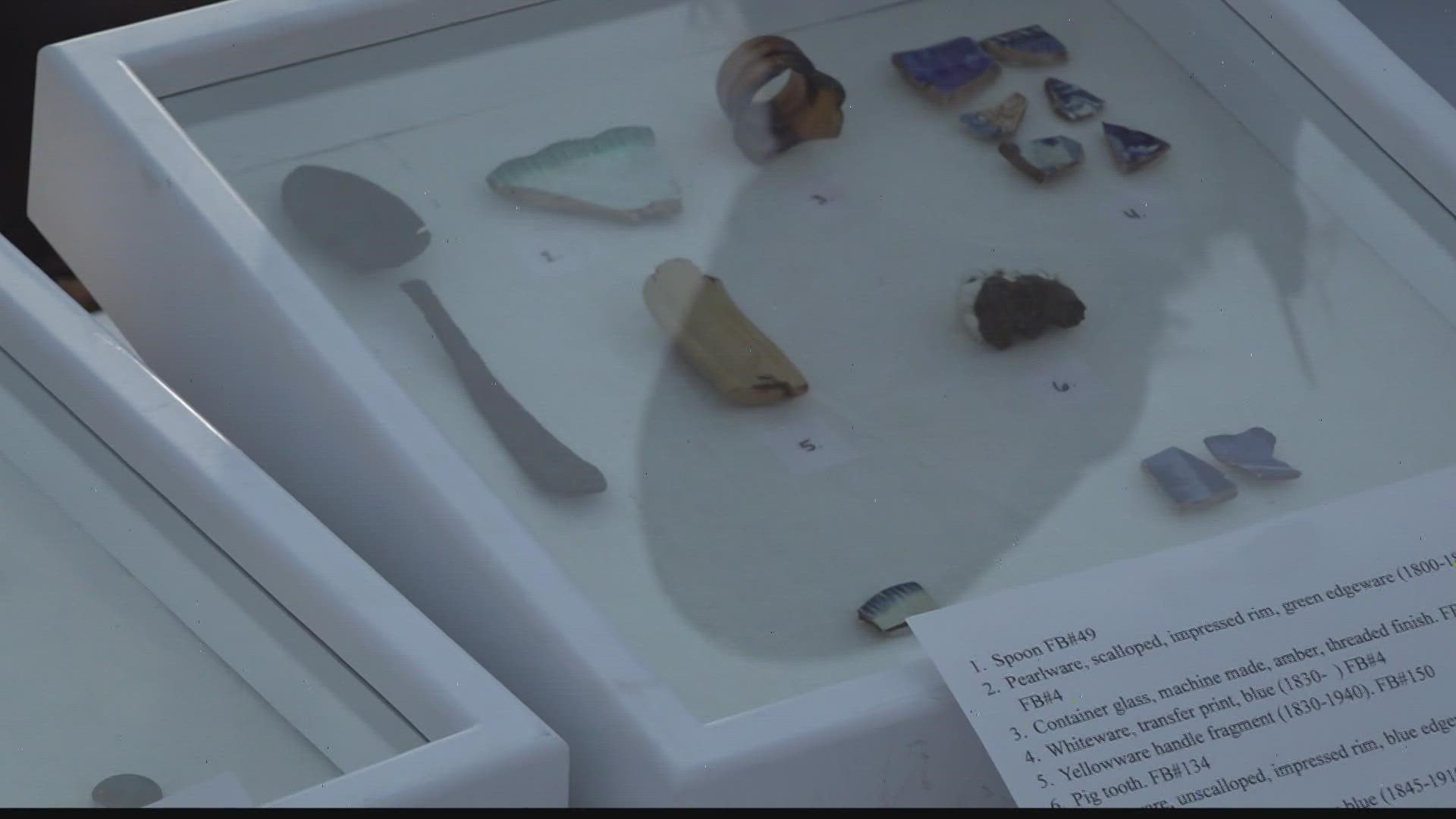HUNTSVILLE, Alabama — Today we go back in time. Our reporter Jasamine Byrd takes us back to Huntsville's origins.
" So the dig we're going to be looking at today is part of our National Historic Preservation Act compliance," said Redstone Arsenal Installation Archaeologist Ben Hoksbergen.
That law states is that anytime a federal entity does anything they have to take into account significant historic properties. " So that's things like archeological sites, historic buildings, buildings over 50 years old, traditional cultural properties that have some sort of significance to particular cultures, particularly Native American or Native Hawaiian tribes," Hoksbergen explained.
That requires them to go out and actually find those properties first. The goal of the uncovering is to preserve data before construction work impacts the site, in compliance with the national historic preservation act. " During this particular phase of excavation, I think this is probably our oldest artifact," he expressed.
New South Associates, Historian, Jenna Tran said this site has a long occupation that starts with the Fennel plantation, " … and goes all the way into the early 1900s with Moses Love, who was an African-American farmer and landowner."
Some archaeological features they've found include, "…things like old cellar pits, trash pits, foundations, things like that," Hoksbergen said.
Another part of the process to get to this point is that "… we try to involve the public to the extent possible. so we'll, we'll do preliminary research and see if we can find any descendants of the families that lived here and reach out to them," he emphasized.
Hoksbergen said, the end goal is to answer a few questions they want to determine like, "…exactly when this site was occupied, who owned it, things like what was the social status of the individuals who lived here, how might they have interacted with the broader outside community and what this information might tell us about the broader scope of American history."

